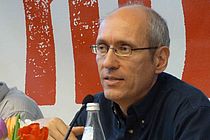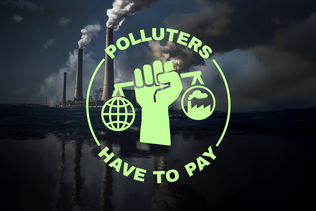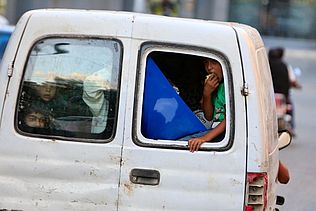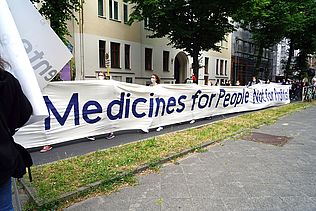The pandemic doesn‘t affect us equally; it increases inequality around the world to the disadvantage of all. Currently - and in the weeks and months ahead - this inequality is perhaps most dramatically evident in the disparity in access to vaccines - but also, of course, in the available number of tests and protective masks, as well as the care and treatment options for those suffering from Covid-19.
That's what World Health Organization (WHO) Director-General Tedros Adhanom Ghebreyesus meant when he said recently at the opening of the 148th session of WHO's Executive Board "that the world is on the brink of a catastrophic moral failure." That's because last spring's promises that vaccines and other means to overcome the pandemic must be "global public goods" for all have proven empty.
Enormous amounts of public money have been invested in recent months in the research and development of diagnostics, medicines and vaccines against Covid19; the German government contributed nearly 400 million Euro to the development of a vaccine by Biontech/Pfizer and even joined the Tübingen-based company Curevac as a shareholder itself. But the public returns on these public investments remain minimal.
That's because the global rules of the game, which give the final developers of these products a monopoly on them through the World Trade Organization (WTO) patent system, seem set in stone despite the global pandemic. They favor not only the owners of patents, data and trademarks, as can be seen in the rapidly rising stock prices of Curevac, Biontech, Pfizer, Moderna and Co. but also the wealthy countries that can pre-order and pay for these expensive products in advance, keeping the poor out of the race for vaccines.
The story of the last twelve months in the development of the Covid 19 vaccines shows crystal-clearly that public investment is the central lever to rapid success, and precisely not the patent system, which is supposed to compensate manufacturers ex post for their investment risks in the event of success and thus represents the central incentive in a capitalist system to produce new knowledge and new products. Nevertheless, the legend of indispensable patents continues to be spun.
Meanwhile, several mechanisms have been proposed to promote and advance equitable distribution and access to these vital commodities in order to collectively overcome the pandemic.
The recent October 2020 initiative to temporarily waive intellectual property rules at the WTO so that medicines and vaccines can be copied more quickly and cheaply by other manufacturers was prompted by South Africa and India. Both countries, with significant Covid19 epidemics, now have the support of more than 100 countries, but their proposal continues to be blocked by a relevant number of powerful countries that are comfortable with the status quo. Just these days again, the European Commission, whose head Ursula von der Leyen was a strong spokesperson for "global public goods" in the spring of 2020, confirmed this.
Another proposal to pool voluntary licenses, trial and regulatory data, and know-how to accelerate the technology transfer needed to overcome the vaccine shortage is the Covid-19 Technology Access Pool, or CTAP, to be managed by WHO. It was established back in May last year at the initiative of Costa Rica and is now supported by a group of more than 40 countries. This concept - modeled on the successful pool for patents and licenses on drugs for AIDS treatment - has also never received the support of relevant countries with research capacities. On the contrary, it has experienced active hostility from the pharmaceutical industry and has led a shadowy existence since its inception. Not a single license has been brought into it.
Finally, the still much-publicized Access to Covid-19 Tools (ACT) Accelerator, with the Covax Initiative for Covid-19 vaccines that is managed by the public-private vaccine alliances GAVI and CEPI: Conceptually, this should have been a joint effort for rich and poor countries to ensure an equitable share of vaccines for all as soon as they become available. Covax was intended to pool strategic financial resources and corresponding bargaining power for lower prices and production expansions vis-à-vis pharmaceutical companies. WHO also developed a distribution plan under which vaccines would be made available to all countries in stages, as a percentage of their respective populations, as soon as they were produced and licensed.
In fact, this has become a purely charitable event, with rich countries buying their way out with "solidarity funding" for the poorest 92 "recipient countries," which must wait until the pharmaceutical companies have serviced most of their now 56 known bilateral contracts with the richer (and some middle-income) countries. To date, there are no known binding delivery dates to Covax or to the countries involved.
The consequences of these bilateral deals are devastating. To quote WHO Director-General Tedros again, "More than 39 million doses of vaccine have now been administered in at least 49 higher-income countries. Just 25 doses have been administered in one lowest-income country. Not 25 million; not 25,000; just 25."
The big companies so far (except for Pfizer/Biontech) are not even bothering to register their vaccines on an expedited basis with WHO as well - which would greatly speed up the registration process in poorer countries with limited resources from their drug regulatory agencies. At least other vaccine manufacturers are now holding out the prospect of doing so, and a corresponding assessment by the WHO is expected in a few weeks. Tedros also clearly criticized this.
And to make matters worse: The much-needed "health system" component, introduced only as an afterthought to the impressive ACT Accelerator architecture, has received minimal funding to date. This will prove particularly critical. Without strong health systems, the prospect of rapidly vaccinating billions of people worldwide becomes an increasingly distant dream - not to mention eroding public confidence in those systems.
The role of civil society cannot be underestimated in the quest for a globally equitable pandemic response. Activists in South Africa, in Kenya, in India, or in Brazil have loudly demanded that their governments adopt Covid19 policies that are committed to the health and social rights of citizens. And around the world, a new movement has emerged from the experience of the struggles for access to AIDS drugs 20 years ago, fighting against the same patent laws that were under discussion back then.
The big companies and the rich states claim, against all evidence, that patents have nothing to do with access to Covid-19 vaccines - they don't want to shake the system of today's global economic structures. But that's the only chance for greater equity: rocking the boat, not stabilizing it, taking essential health knowledge and tools out of private ownership to make them accessible to all. This is true not just of vaccines - but just as true of privatized hospitals and financing systems built on competition rather than good planning. The buzzword of "remunicipalization" is already making the rounds at least in Germany.

Andreas Wulf
Andreas Wulf is a physician who works on global health issues at medico international. The organization co-initiated the "Patents Kill" campaign.




